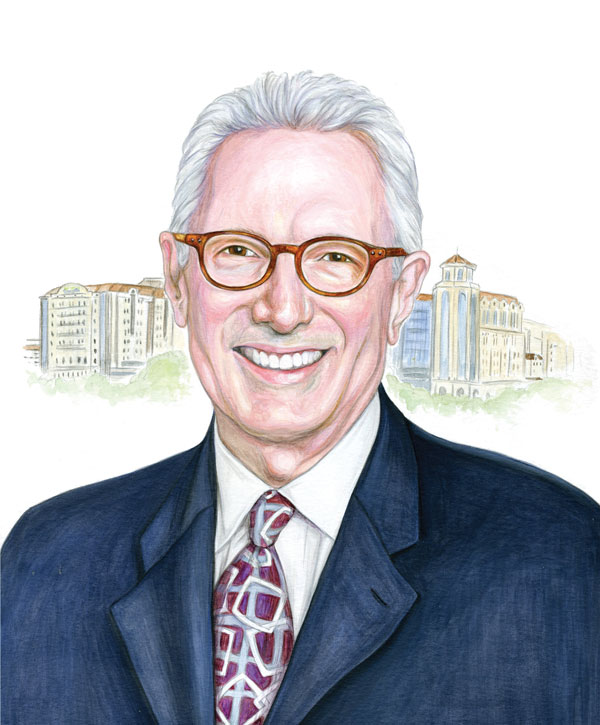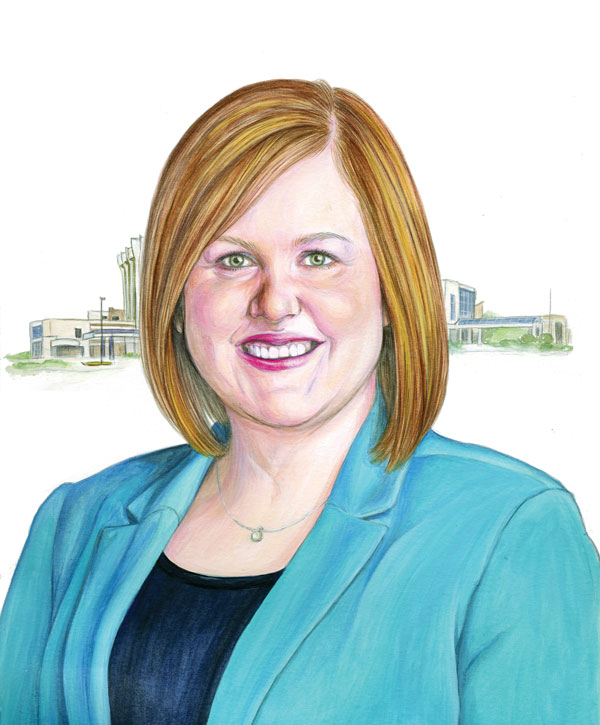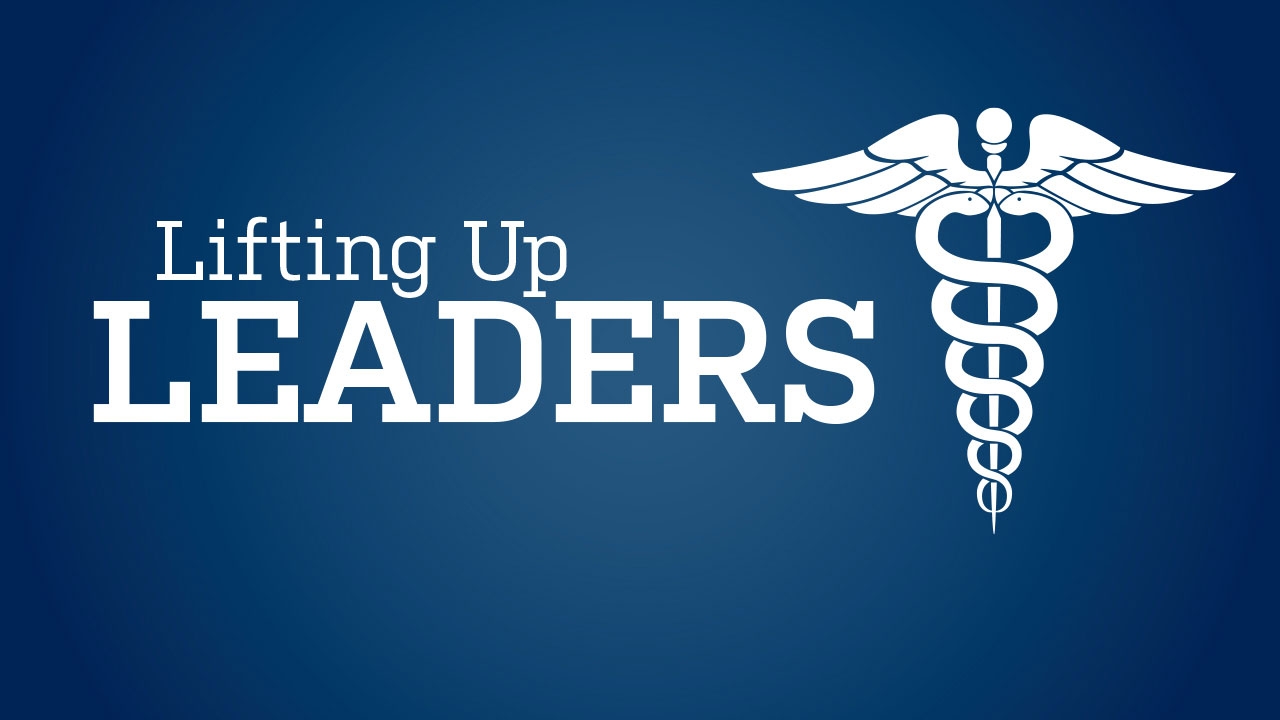Last summer, as a fearsome Hurricane Harvey washed ashore near Houston, Chuck Stokes faced some big decisions. The president and chief executive officer of the city’s Memorial Hermann Health System led a team of administrators charged with ensuring that patients safely received high-quality care while the storm raged.
In the end, the 17-hospital system closed only one hospital for 36 hours as waters rose following the August hurricane. It was an eventful welcome to the job for Stokes, named to his new role just two months earlier. But Harvey wasn’t the first managerial challenge he has weathered in his career, which includes nine years as chief operating officer at Memorial Hermann and six other health systems throughout the South. Stokes credits his education at UAB, where he earned a Master of Science in Health Administration (M.S.H.A.) in the School of Health Professions, for furnishing knowledge and skills to provide leadership that impacts hundreds of thousands of patients and families.
 Chuck Stokes
Chuck StokesLeaders across America
Stokes is among more than 1,300 UAB M.S.H.A. alumni shaping the course of health care—including many who serve as hospital and health system presidents, CEOs, or COOs—from Florida to California and from Michigan to Alabama. (Will Ferniany, Ph.D., CEO of the UAB Health System, is a UAB M.S.H.A. alumnus.) Adding to its national profile, the program ranked #2 in a recent U.S. News & World Report listing of America’s best graduate schools. It even has an international component, offering M.S.H.A. education in Saudi Arabia through a partnership with a hospital there. “UAB is leaving its fingerprints on the industry as a leader and educator of health-care executives,” Stokes says.
A native of Yazoo City, Mississippi, Stokes began his career as a nurse, eventually becoming nurse executive for critical care nursing at the University of Mississippi Medical Center in Jackson. “After a couple of years in nursing administration, I wanted to understand how the overall health-care system works,” Stokes recalls. “I knew a lot about nursing and patient care, but I wanted to learn more about the entire hospital.” The medical center’s CEO urged him to enroll at UAB, which had a longstanding residency affiliation with the hospital.
Stokes graduated with an M.S.H.A. in 1983. Adding leadership education to his clinical experience created “a unique and complementary” background that has helped in every role, he says. “Understanding both the clinical and business dimension has been critical to success in my almost 40-year career.”
One key lesson he has learned in Birmingham and the boardroom is the importance of increasing diversity in health-care administration. “To provide the highest quality, most efficient, and the most patient-centered care, your leadership team and workforce should mirror the community where you live,” he says. That’s something he champions as the new chairman of American College of Healthcare Executives, an international association with a membership surpassing 40,000. That commitment also will change the lives of students in the School of Health Professions. Recently Stokes and his wife created the Chuck and Judy Stokes Endowed Scholarship for Diversity and Inclusion, which awards its first recipients in 2018. “You can’t wait for diversity to happen,” he says. “You must be intentional about making it happen.”
The business of care
Established in 1965, the M.S.H.A. program offers a residential format for people just finishing their undergraduate education or seeking a career change, and an executive format for those with five or more years of health-care experience. Ashley Dickinson was among those students looking for a new career. The Tulsa, Oklahoma, native was an auditor for a major energy company before she enrolled in the residential format a decade ago, drawn by the UAB program’s reputation and longevity. In April 2017, she was named CEO of La Porte Hospital in La Porte, Indiana.
 Ashley Dickinson
Ashley DickinsonGrowing up in a family of health-care providers, Dickinson was drawn to medicine—and business—from a young age. “This field combines two things I love,” she says. At UAB, she pursued both an M.S.H.A. and an M.B.A. from the Collat School of Business with a sense of where she wanted to go beyond graduation. “The professors, particularly Dr. Houser [Howard Houser, Ph.D., professor emeritus and former M.S.H.A. director and chair of the Department of Health Services Administration] talked with me about what was important from a career perspective and how I could get there,” she says.
Dickinson also appreciated UAB’s administrative residency, which is rare among M.S.H.A. programs, she says. The paid, full-time, nine- to 12-month experience challenges students to apply their knowledge in a health-care environment, working alongside a senior executive. In 2017, M.S.H.A. residents had spread throughout the country, from hospitals in Birmingham to medical centers in Connecticut, Kansas, and Colorado. A high percentage of students receive job offers from their residency sites.
Building a bright future
That’s what happened to Dickinson. The residency brought her to Community Health Systems, which includes La Porte Hospital. She stayed on in various administrative roles after her 2009 graduation. Now, as CEO, she oversees the largest health-care provider in the northern Indiana town of nearly 22,000 people. The community hospital works to address health challenges throughout the surrounding area, which includes counties ranked among the unhealthiest in the state. At the same time, it has embarked upon a $125-million construction project—scheduled for completion in 2020—to replace the current hospital.
With all of that on her plate, Dickinson says the M.S.H.A. program’s emphasis on multidisciplinary teamwork offers essential lessons. “We can’t be siloed departments,” she says. “We have to come together as a team, across the system, to take care of our patients. That’s what health care is.
“This is the perfect job for me,” she adds. “I love that every day, everything we do makes a difference in our patients’ lives.”


